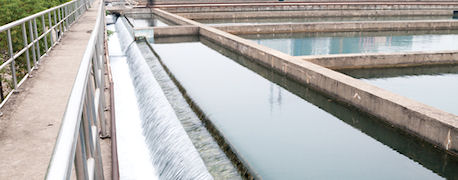
A U.S. District Court judge in Iowa has punted on the first decision regarding the Des Moines Water Works (DMWW) vs. counties and drainage districts.
The Court wrote “I would have to reject the thoughtful, creative, novel, and well argued positions of DMWW, as unsupported by Iowa law and unlikely to be adopted by the Supreme Court, if I did not certify these questions.”
The Court writes that DMWW’s state law arguments are “novel” and this case is one of first impression. (Cases go back a hundred plus years on this issue, and all reach the same result in favor of the drainage districts and farmers.) The fight is over whether the counties and drainage districts have absolute immunity from being sued.
The Court ignored the counties and drainage districts’ arguments that by certifying legal questions to the Iowa Supreme Court this would “…require the Iowa Supreme Court to revisit well-settled precedent regarding drainage district immunity in tort, not novel questions of state law.”
Relate: Counties say Des Moines Water Works is all wet
The Court exhibits no knowledge of preemption that the Clean Water Act (CWA) has in Section 319, which clearly allows for nonpoint source runoff from farmland lands or through tiles. The Court seems not to understand there is also protection for farm runoff set forth in the CWA agricultural storm water exemption.
The Court did note out-of-state law firms may not create positive results, but here “…two highly regarded and respected Iowa law firms, in the style of Iowa lawyers, extremely zealous advocates but dedicated to civility…did a wonderful job...”
The Des Moines water case involves the drainage of surface waters through farm tiles. The Iowa legislature has concluded that “…drainage from agricultural and other lands shall be presumed to benefit the public:” The Iowa legislature has also declared “…drainage and protection from overflow of agricultural or overflow lands shall be liberally construed to promote leveeing, ditching, draining and reclamation of wet, swampy, and overflow lands.”
The drainage districts’ case
The counties and drainage districts argue they are not proper parties and should not be sued based on “...clear, longstanding, and overwhelming precedent, which establishes that Iowa does not recognize drainage districts as anything more than vehicles to effectuate the Iowa Legislature’s intent to allow property owners to join together to make land productive through drainage.” They point out that for over a century, Iowa courts have found repeatedly that drainage districts are not subject to lawsuits for damages.
Defendants advised the District Court that its request to the Iowa Supreme court means the U.S. Supreme Court, the Iowa Supreme Court, the Iowa Legislature, and the 8th Circuit Court of Appeals have all been wrong!!! DMWW, on the other hand, argues that counties and drainage districts do not have “unqualified immunity” or absolute immunity from lawsuits. Times have changed and so should the law, claims DMWW.
DMWW argues policy issues – not the law. It says policy should be changed because “...unqualified immunity [from law suits] for drainage districts is no longer good law and should be changed because the enactment of the county home rule undermines the rationale for unqualified immunity.”
Further, in a policy argument, DMWW argues that the presumption of unqualified immunity that the drainage districts have, of operating for public benefit, may be rebutted. DMWW believes the history and development of drainage districts needs to be changed because of modern needs.
“DMWW notes the maxim that when the reason for a common law rule ends so should the rule...” DMWW further argues that “...since the enactment of environmental water laws, some 75 years after the enactment of drainage district laws, there has been a shift in favoring the interest of human rights over those of property.”
It further argues that because of adverse health impacts caused by environmental pollution there should be no unqualified immunity for the drainage districts to discharge water with nitrates. Again, DMWW seems to not understand that the CWA declares that stormwater runoff from farms is not treated the same as point source discharges.
One final note – the Court notes there are health risks associated with nitrate contamination which causes “blue baby syndrome”. The World Health Organization (WHO) in 2011 published “Nitrate and nitrite in drinking water”. On page 16 it declared, “The guideline value for nitrate of 50 mg/l [50 ppm] as nitrate...is protective for bottle-fed infants, and…for other population groups...” The National Research Council (NRC) published in the National Academy Press in 1995 states “...97%of nitrate intake comes from diet...[and] 99% of nitrite intake comes from diet.” NRC goes on to declare “...no cases of methemoglobinemia (blue baby syndrome) occurring at exposure concentrations less than 50 mg/l have been reported in the United States.”
Facts are important.
About the Author(s)
You May Also Like




